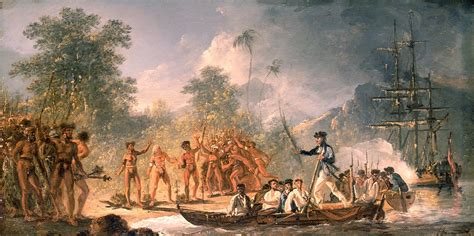Explore the rich history and journey of Vietnam from early civilization to modern times, including wars, independence, and economic development.
Early Vietnamese Civilization
Contents
The early Vietnamese civilization dates back to around 8000 BCE, with the early Dong Son culture forming the basis of what would later become Vietnam. The Dong Son culture was known for its bronze drums and intricate artwork, indicating a sophisticated society with a rich artistic tradition.
As the civilization developed, the Vietnamese people began to form agricultural communities along the Red River Delta. This fertile region allowed for the cultivation of rice, leading to the establishment of complex societies and the development of social hierarchies.
During this time, Vietnamese society also began to incorporate elements of Chinese culture, including the use of Chinese script and Confucianism. This cultural exchange had a lasting impact on the development of Vietnamese civilization, shaping its language, religion, and political structure.
The early Vietnamese civilization also saw the emergence of powerful kingdoms, such as the Van Lang and Au Lac, which laid the foundation for the unified state of Vietnam. These kingdoms engaged in trade with neighboring regions, further enriching Vietnamese culture and contributing to the growth of its civilization.
Chinese Domination of Vietnam
Chinese Domination of Vietnam
The history of Vietnam is marked by various periods of Chinese domination. For over a thousand years, Vietnam was ruled by various Chinese dynasties, starting from the Qin Dynasty in 111 BC. During this period, Vietnam’s culture and society were heavily influenced by Chinese political and social systems, and Confucianism was adopted as the dominant ideology.
Impact on Vietnam…
The Chinese domination had a lasting impact on Vietnam’s development, shaping the country’s political and cultural landscape. Vietnam’s ruling class and bureaucracy were heavily influenced by Chinese administrative structures, and Chinese characters were used for writing and official communications. While the Vietnamese people maintained their distinct language and cultural traditions, the centuries of Chinese rule left a deep imprint on the country’s identity.
Resistance and Independence…
Throughout the Chinese domination, Vietnam’s people continued to resist and fight for their independence. Legendary figures such as the Trung Sisters and Ly Nam De symbolized the spirit of Vietnamese resistance against foreign rule, inspiring future generations to seek autonomy and freedom from Chinese dominance. The struggle for independence played a crucial role in shaping Vietnam’s national identity and fostering a strong sense of patriotism among its people.
Vietnam’s Fight for Independence
The fight for independence in Vietnam was a long and arduous struggle. The Vietnamese people endured centuries of foreign domination, first by the Chinese, then by the French, and finally by the Japanese during World War II. Despite these challenges, the Vietnamese remained resilient and determined to regain control of their country.
Under the leadership of Ho Chi Minh and the Viet Minh movement, the Vietnamese people mobilized to resist foreign occupation. This led to the First Indochina War in which the Viet Minh fought against the French colonial forces. The Vietnamese people’s unwavering commitment to independence and sovereignty eventually led to the defeat of the French at the Battle of Dien Bien Phu in 1954.
Following the French defeat, Vietnam was temporarily divided into the communist North and the non-communist South. This division ultimately led to the Second Indochina War, also known as the Vietnam War. The Vietnamese people continued their struggle for independence against the United States and its allies, ultimately prevailing and reunifying the country under communist rule in 1976.
The Vietnamese people’s fight for independence is a testament to their unwavering resilience and determination. Despite facing overwhelming odds and powerful adversaries, they never wavered in their pursuit of freedom and self-determination. Today, Vietnam stands as a sovereign nation with a rich history of overcoming foreign domination and fighting for its independence.
Vietnam War and US Involvement
The Vietnam War was a prolonged conflict that took place from 1955 to 1975. It was fought between the communist government of North Vietnam and the government of South Vietnam, supported by the United States. The roots of the war can be traced back to the dominance of Vietnam by the Chinese for many centuries, and the subsequent influence of French colonial rule in the 19th century. The conflict escalated as the United States became increasingly involved in the region, in an effort to contain the spread of communism during the Cold War.
As the war progressed, the US military became heavily involved in the conflict, sending hundreds of thousands of troops to support the South Vietnamese government. The war was marked by intense fighting, including the widespread use of guerilla warfare by the North Vietnamese forces. The conflict also had a devastating impact on the civilian population, leading to widespread suffering and displacement.
The US involvement in the Vietnam War sparked widespread protest and opposition at home, and eventually led to the withdrawal of American forces in 1973. The war officially ended in 1975 with the fall of Saigon, the capital of South Vietnam, to the North Vietnamese forces. The conflict had a profound impact on both Vietnam and the United States, and its legacy continues to be felt to this day.
In conclusion, the Vietnam War and US involvement was a complex and tragic chapter in the history of Vietnam. It was a conflict that arose from the interplay of historical, political, and ideological factors, and it had far-reaching consequences for all parties involved. Understanding this period of history is crucial for gaining insight into the modern dynamics of Vietnam and its relations with the international community.
Modern Vietnam: Economy and Society
Modern Vietnam has experienced significant economic growth and development in recent years, making it one of the fastest-growing economies in the world. The country has undergone a major shift from a centrally planned economy to a socialist-oriented market economy, opening its doors to foreign investment and trade. This shift has led to a rapid increase in industrialization and urbanization, transforming Vietnam’s economic landscape.
The economy of Vietnam is diverse and includes agriculture, manufacturing, and services. The agricultural sector, which once dominated the economy, has now been overtaken by manufacturing and services. Vietnam is a major exporter of textiles, electronics, and agricultural products, contributing to the country’s economic growth.
Despite economic growth, Vietnam still faces challenges such as income inequality, corruption, and environmental degradation. The government has implemented reforms to address these issues and promote sustainable development. Efforts have been made to improve infrastructure, education, and healthcare, aiming to enhance the well-being of the population and reduce poverty.
Socially, Vietnam is undergoing rapid changes as a result of economic development and urbanization. The younger generation is more exposed to Western influences and technology, leading to shifts in lifestyle and cultural values. However, traditional Vietnamese culture and customs continue to play a significant role in society, influencing daily life, social interactions, and religious practices.
In conclusion, modern Vietnam’s economy and society have gone through remarkable transformations, bringing both opportunities and challenges to the country. The government’s efforts to promote sustainable development and improve the well-being of its citizens will be crucial in shaping the future of Vietnam.














